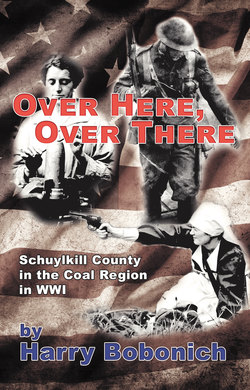Читать книгу Over Here and Over There - Harry Bobonich - Страница 17
На сайте Литреса книга снята с продажи.
First London Blitz and Terror
ОглавлениеExploding devices were dropped on Venice, Italy from balloons as early as 1849. It wasn’t until 1911 during the Italian-Turkish War, that Lt. Giulio Gavotti dropped an aerial bomb from his plane on Turkish troops in Libya. Gavotti wrote, “I take the bomb with my right hand, pull off the security tag and throw the bomb out—avoiding the right wing.” When he returned to his home base he reported directly to General Caneva and said, “I have hit the target.” It was, in a way, the dawn of aerial bombing and all the horrors that would eventually follow. (Johnston 2011)
Early in the war, on January 1915, England experienced an astonishing and unforeseen event; huge German zeppelins dropped bombs on English towns. It was the first time in British history that England was bombed from the sky. The deadly war on the Western Front had come home.
Then on May 31-- as London residents prepared to settle in for the night--giant German airships were maneuvering high in the night sky over the British capital. Shortly afterward, incendiary bombs and grenades were raining down from the monstrous zeppelins bombing the city. Many explosions rocked London and also lit up the night sky. People were mystified as fear and panic spread through the city. The morale of London’s people—including women and children--were now a target in the war.
The terrifying attack seemed to be directly from a science–fiction book. English author H. G. Wells, “the father of science fiction,” in his novel The War in the Air, which he published in 1908, had anticipated such an attack. In his novel Wells describes himself as an innocent passenger on a fleet of gigantic German airships heading over the Atlantic Ocean in an astonishing raid dropping bombs over New York City. But then, England did not pay any attention to his predictions: they were simply not believable.
While English newspaper headlines featured the havoc of the new terrifying weapons the Germans had, it was not news that many small town newspapers in America reported. At the time, we were an isolationist country and the foreign war was across the ocean and seemed far away. We would not enter the war for another two years.
In that first London blitz, the German zeppelin raids killed seven residents and wounded 35 others; the psychological effect, however, was devastating. Eventually the huge slow zeppelins were too vulnerable for the improved British planes that began to shoot them down. All told in the war, the massive zeppelins killed 700 people and injured about 2000—but it did not break the British morale, which was the Germans ultimate goal. While the zeppelins were not deadly, they appeared to be new awesome weapons and did shock and frighten people. (Klein 2014)
(Some 25 years later in WWII, terror again reigned down from the sky when German Luftwaffe dropped bombs on London killing about 20,000 residents.)
